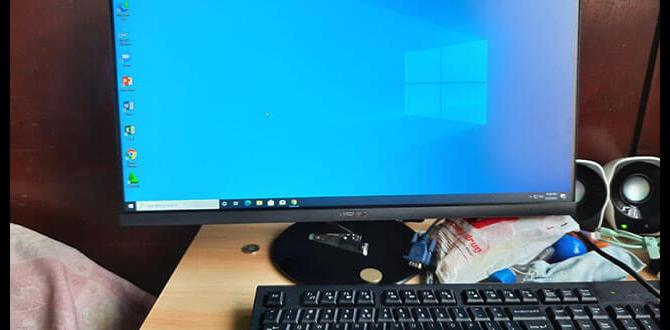When it comes to technology, unexpected issues can sometimes force us to make tough decisions. One such dilemma is whether it’s okay to forcefully shut down a gaming PC. This action is often seen as a last resort when the system becomes unresponsive or encounters a critical error. However, the risks associated with a forced shutdown should not be overlooked. In this article, we will explore the potential dangers of abruptly turning off your PC, alternative solutions to consider, and best practices for a safe shutdown process.
Risks of Forced Shutdown
Hardware Damage
Forcing a shutdown can lead to hardware damage, especially if the components are still actively running processes or saving data. Abruptly cutting off power can cause stress on the hardware, potentially leading to long-term issues.
Data Loss
One of the most immediate risks of a forced shutdown is data loss. If programs or files are in the middle of being saved, cutting off power can corrupt or lose the data, causing inconvenience or even irreparable damage.
System Instability
Repeated forced shutdowns can result in system instability. This instability may manifest as frequent crashes, errors, or performance issues, ultimately impacting the overall functionality of your gaming PC.
Alternatives to Forced Shutdown
Restart through Software
One alternative to forced shutdown is to attempt a restart using software commands. This method allows the system to close processes and programs properly before rebooting, reducing the risks associated with sudden power loss.
Task Manager
Accessing the Task Manager can help identify and close unresponsive programs or processes that may be causing system issues. Ending these tasks through Task Manager can sometimes resolve the problem without the need for a forced shutdown.
Proper Shutdown Procedure
Following the proper shutdown procedure is crucial for maintaining the health of your gaming PC. Closing all programs, saving work, and selecting the shutdown option from the operating system can help ensure a safe and graceful exit from your system.
Best Practices for Shutting Down
Save All Work
Before initiating a shutdown, make sure to save all your work to prevent data loss and corruption. This ensures that your files are safely stored before powering off the system.
Close All Programs
Before shutting down, close all running programs and applications. This allows the system to properly terminate processes, reducing the likelihood of issues upon restart.
Use Power Button as Last Resort
Reserve using the power button as a last resort when all other methods have failed. This should only be employed if the system is completely unresponsive and other shutdown options are not working.
Conclusion
While forcibly shutting down a gaming PC may seem like a quick fix for unresponsive systems, the risks associated with this action cannot be ignored. Hardware damage, data loss, and system instability are all potential consequences of abrupt shutdowns. Instead, consider alternative methods like restarting through software, using Task Manager, or following the proper shutdown procedure to maintain the health of your system.
FAQs
1. Can forcibly shutting down a gaming PC cause permanent damage?
Forced shutdowns can potentially cause hardware damage over time, especially if done frequently. It’s best to avoid this practice whenever possible to prevent long-term issues.
2. What should I do if my gaming PC becomes unresponsive?
If your gaming PC becomes unresponsive, try using software-based solutions like restarting through the operating system or accessing Task Manager to close problematic processes.
3. How can I minimize the risks of data loss during a shutdown?
To minimize the risks of data loss, ensure to save all your work before shutting down your PC. Closing programs properly and following the correct shutdown procedure can also help safeguard your data.
4. Is it safe to use the power button to shut down my gaming PC?
Using the power button to shut down your PC should be a last resort option. It is recommended to follow the standard shutdown procedure to avoid potential hardware or software issues.
5. What are the common signs of hardware damage due to forced shutdowns?
Common signs of hardware damage from forced shutdowns may include system crashes, error messages, performance issues, or physical damage to components over time. It’s important to handle your PC with care to prevent such issues.
